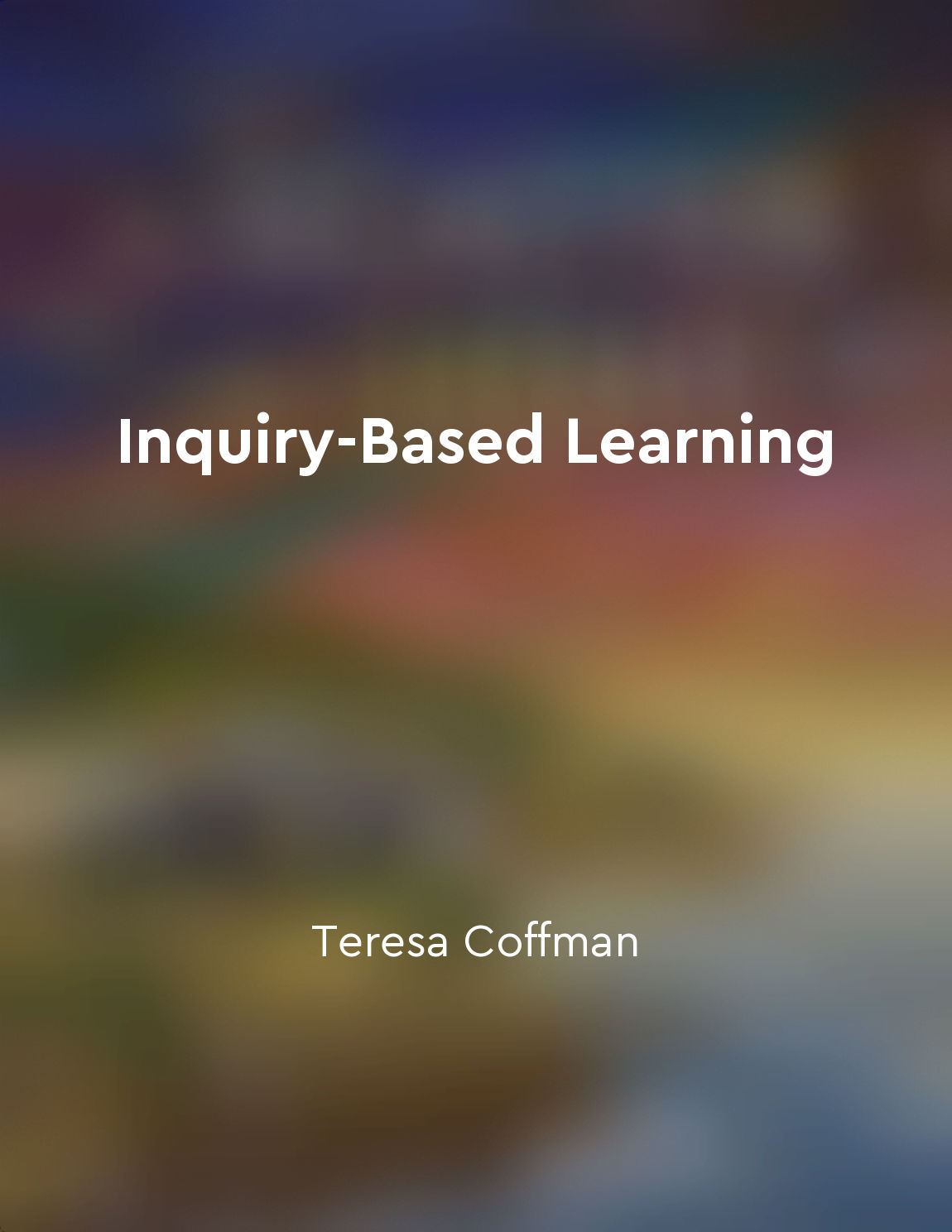Inquirybased learning empowers students to explore from "summary" of Inquiry-Based Learning by Teresa Coffman
The essence of inquiry-based learning lies in its ability to foster a sense of exploration and discovery in students. By engaging with open-ended questions and real-world problems, students are encouraged to dig deeper, think critically, and seek out their own answers. This process of inquiry empowers students to take ownership of their learning and develop a sense of curiosity and autonomy. Through inquiry-based learning, students are given the freedom to explore topics that interest them, allowing for a more personalized and meaningful learning experience. This approach not only increases student engagement and motivation but also encourages them to become active participants in their own education. By encouraging students to ask questions, seek out information, and evaluate evidence, inquiry-based learning cultivates important skills such as critical thinking, problem-solving, and communication. Inquiry-based learning also promotes a deeper understanding of concepts and content. By engaging in hands-on activities, conducting research, and collaborating with peers, students are able to make connections between theory and practice, leading to a more holistic understanding of the subject matter. This active learning approach not only improves retention and comprehension but also encourages students to think creatively and apply their knowledge in new and meaningful ways. Furthermore, inquiry-based learning promotes a growth mindset by emphasizing the process of learning rather than the end result. By encouraging students to embrace challenges, learn from their mistakes, and persevere in the face of obstacles, inquiry-based learning fosters a sense of resilience and self-efficacy. This approach not only prepares students for academic success but also equips them with the skills and mindset needed to navigate the complexities of the modern world.- Inquiry-based learning empowers students to explore, discover, and learn in a way that is engaging, meaningful, and transformative. By encouraging students to ask questions, seek out answers, and make connections, inquiry-based learning cultivates important skills, fosters a growth mindset, and promotes a deeper understanding of concepts and content. Ultimately, inquiry-based learning provides students with the tools and confidence they need to become lifelong learners and critical thinkers in an ever-changing world.
Similar Posts
Evaluate sources critically
To evaluate sources critically means to approach information with a discerning eye. It involves looking beyond the surface of a...
Solutions to challenging math problems
The key to solving challenging math problems lies in breaking them down into smaller, more manageable parts. By approaching eac...
Challenge the status quo
The concept "Challenge the status quo" is about questioning the way things are done, the norms that have been established, the ...
Critical thinking enhances problemsolving abilities
In order to effectively solve problems, individuals must be able to think critically about the situation at hand. Critical thin...
PBL can be implemented in various disciplines
Problem-based learning (PBL) is a versatile educational approach that can be effectively utilized across a wide range of academ...
Teachers should be reflective practitioners who constantly strive to improve their practice
The idea that educators should be reflective practitioners who are always looking for ways to enhance their teaching is fundame...
PBL helps students develop communication skills
Problem-based learning (PBL) serves as an effective approach to fostering the development of vital communication skills in stud...

Authentic experiences drive learning
Authentic experiences are at the heart of inquiry-based learning. When students engage in activities that are meaningful and re...
Learning should be personalized to meet individual needs
In education, it is essential to recognize that every student is unique. Each child comes from a different background, possesse...

Cultivate a sense of agency in students
When we talk about cultivating a sense of agency in students, we're really talking about giving them ownership over their own l...

